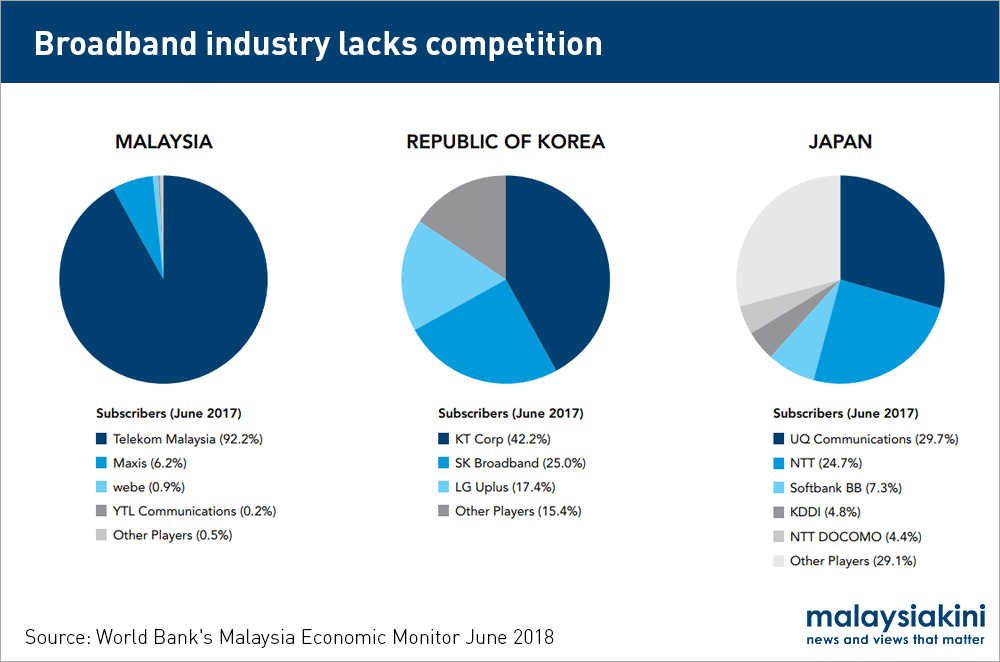A lack of competition among Malaysian internet service providers had led to higher prices and lower speeds for broadband in the country, said the World Bank's Malaysia Economic Monitor June 2018 report.
"In terms of price per Mbps, Malaysia ranks 74 out of 167 countries for fixed broadband services and 64 out of 118 for fibre broadband services.
"This places it behind regional competitors such as Vietnam and countries at a similar level of economic development such as Mexico and Turkey," read the report.
The report attributed this outcome to a lack of competition citing how Telekom Malaysia (TM) held 92.2 percent of the market share as of June 2017 – a significantly larger share than other leading firms in other countries.
TM, said the World Bank, charged a fee for other ISPs to use its cable landing stations which led to higher cost for broadband rollout. TM also had exclusive rights to government contracts to deploy high-speed broadband and sub-urban broadband plans.
"This eventually eliminates the possibility of attracting private investment for network rollout operations," he said.
In terms of services, the World Bank said Malaysia's average download speed (22.56 Mbps) was significantly lower than regional peers such as Singapore which ranked No 1 (161.53 Mbps) and S Korea (129.64 Mbps).
"Countries at similar levels of economic development as Malaysia also had significantly faster download speeds. For example, Hungary has an average download speed of 90.94 Mbps, while Thailand has an average speed of 41.35 Mbps," revealed the report.

Average digital adoption
The report recommended that Malaysia double its internet speed and aspire to achieve gigabit-level connectivity, pointing to how S Korea plans to commercialise 10 Gbps broadband service by 2020 while Sweden aimed to provide a minimum 1 Gbps broadband access by 2025.
Meanwhile, the report said Malaysia scored well on the World Bank's Digital Adoption Index (DAI) in terms of digital adoption by its people and government though not businesses.
The report said only 62 percent of businesses were connected to the Internet while only 28 percent had some form of web presence. In comparison, 96 percent of businesses in the EU had access to broadband services while 75 percent had a web presence.
"In general, in terms of the level of digital adoption by businesses, Malaysia's performance is roughly average for a lower middle-income country," read the report.

